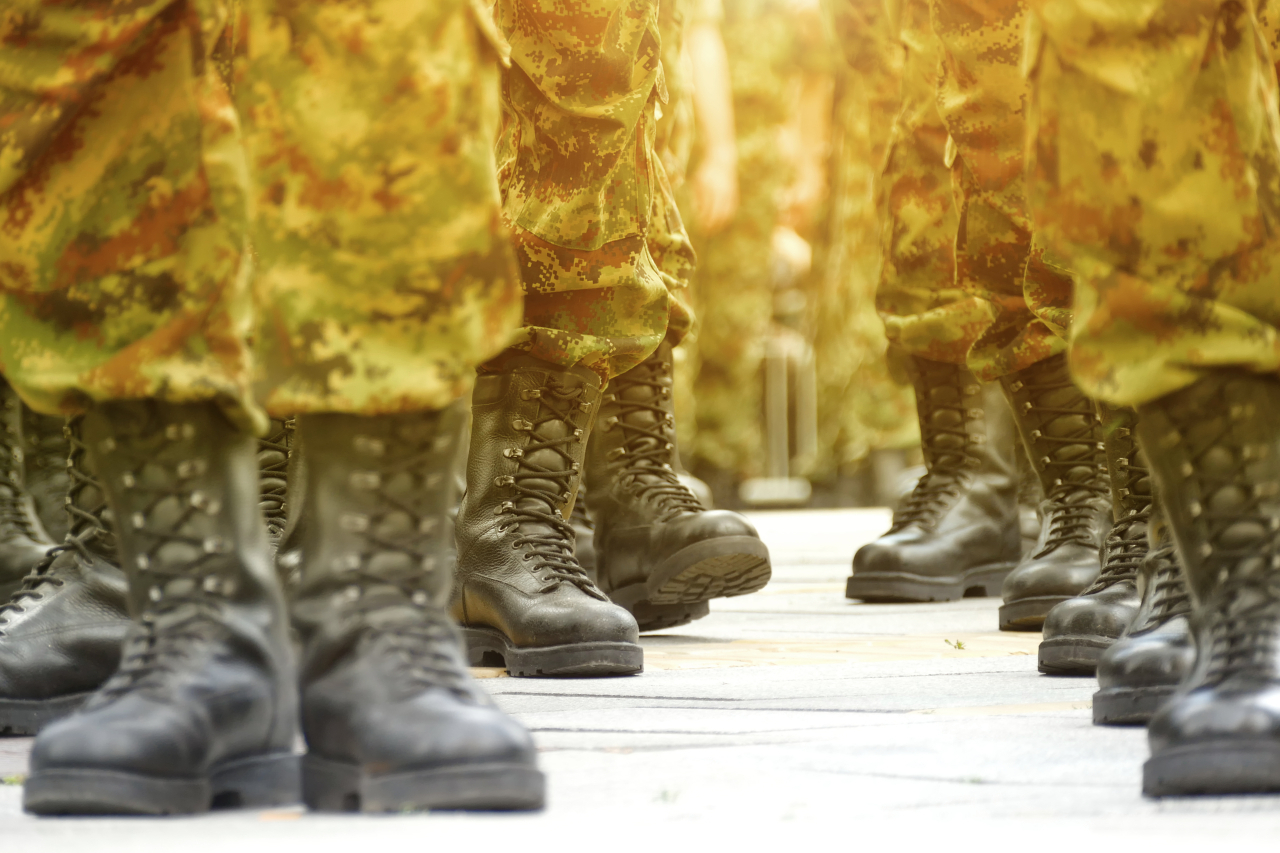
South Korea’s military is looking to revamp living conditions for conscripts as soldiers of Generation Z – those born between mid-1990s to early 2010s – have hit out at the military over subpar living environments amid the COVID-19 pandemic.
Two weeks ago, Korea’s National Human Rights Commission said it will launch an investigation into allegations that the military violated rights of conscripts in quarantine. The soldiers posted on Facebook that they had been fed poorly and denied access to bathrooms because of COVID-19 precautions.
The military, which apologized for the problems that had gone “overlooked,” revealed that they will allow conscripts in quarantine to have extra food delivered from post exchange stores, in addition to receiving a bigger meal ration. Access to bathrooms was granted again.
The plan, revealed on Friday, also includes establishing an independent body that will receive complaints from conscripts via a smartphone app.
“We’re trying to build an open communication with the soldiers,” Vice Defense Minister Park Jae-min said, noting it will help the military to tackle complaints head-on.
A military official said young soldiers show a greater tendency to quickly share with others what they see as “injustice,” whether it be as small as a daily meal.
“There were times when soldiers did not confront that because they just didn’t want to make a scene. And I’m not saying the young soldiers should do the same. Times have changed,” the official said.
Experts said the new generation is leading the charge for change in the military, which has often dismissed complaints over living conditions as trivial. The movement could have gained this much traction because members of the public instantly empathized with them on social media, they added.
“Everyone is connected to social media and we all have a community there, ready to receive and spread news at a second. And news travels fast, bad news faster,” said Kim Yun-tae, a sociology professor at Korea University.
Kim favored trying a smartphone app to collect conscripts’ complaints, though he said he will have to see if the new system will address complaints as effectively as the military expects.
Other experts slammed the idea as half-baked.
“Would anyone really use that when they can just go to Facebook or outside watchdogs monitoring the military 24/7?” said Shin Jong-woo, a senior analyst at the Korea Defense and Security Forum.
He also suggested having nutritious, more-than-adequate meals in the first place, rather than have someone pick up extra food deliveries, adding every measure the military has rolled out so far looks redundant.
“What is left unaddressed after all is the very perception that the military can override conscripts’ rights to fair living conditions when necessary, in this case COVID-19. We should start discussing that,” Shin said.
By Choi Si-young (siyoungchoi@heraldcorp.com)
Two weeks ago, Korea’s National Human Rights Commission said it will launch an investigation into allegations that the military violated rights of conscripts in quarantine. The soldiers posted on Facebook that they had been fed poorly and denied access to bathrooms because of COVID-19 precautions.
The military, which apologized for the problems that had gone “overlooked,” revealed that they will allow conscripts in quarantine to have extra food delivered from post exchange stores, in addition to receiving a bigger meal ration. Access to bathrooms was granted again.
The plan, revealed on Friday, also includes establishing an independent body that will receive complaints from conscripts via a smartphone app.
“We’re trying to build an open communication with the soldiers,” Vice Defense Minister Park Jae-min said, noting it will help the military to tackle complaints head-on.
A military official said young soldiers show a greater tendency to quickly share with others what they see as “injustice,” whether it be as small as a daily meal.
“There were times when soldiers did not confront that because they just didn’t want to make a scene. And I’m not saying the young soldiers should do the same. Times have changed,” the official said.
Experts said the new generation is leading the charge for change in the military, which has often dismissed complaints over living conditions as trivial. The movement could have gained this much traction because members of the public instantly empathized with them on social media, they added.
“Everyone is connected to social media and we all have a community there, ready to receive and spread news at a second. And news travels fast, bad news faster,” said Kim Yun-tae, a sociology professor at Korea University.
Kim favored trying a smartphone app to collect conscripts’ complaints, though he said he will have to see if the new system will address complaints as effectively as the military expects.
Other experts slammed the idea as half-baked.
“Would anyone really use that when they can just go to Facebook or outside watchdogs monitoring the military 24/7?” said Shin Jong-woo, a senior analyst at the Korea Defense and Security Forum.
He also suggested having nutritious, more-than-adequate meals in the first place, rather than have someone pick up extra food deliveries, adding every measure the military has rolled out so far looks redundant.
“What is left unaddressed after all is the very perception that the military can override conscripts’ rights to fair living conditions when necessary, in this case COVID-19. We should start discussing that,” Shin said.
By Choi Si-young (siyoungchoi@heraldcorp.com)








![[Kim Seong-kon] Democracy and the future of South Korea](http://res.heraldm.com/phpwas/restmb_idxmake.php?idx=644&simg=/content/image/2024/04/16/20240416050802_0.jpg&u=)








![[KH Explains] Hyundai's full hybrid edge to pay off amid slow transition to pure EVs](http://res.heraldm.com/phpwas/restmb_idxmake.php?idx=652&simg=/content/image/2024/04/18/20240418050645_0.jpg&u=20240418181020)

![[Today’s K-pop] Zico drops snippet of collaboration with Jennie](http://res.heraldm.com/phpwas/restmb_idxmake.php?idx=642&simg=/content/image/2024/04/18/20240418050702_0.jpg&u=)